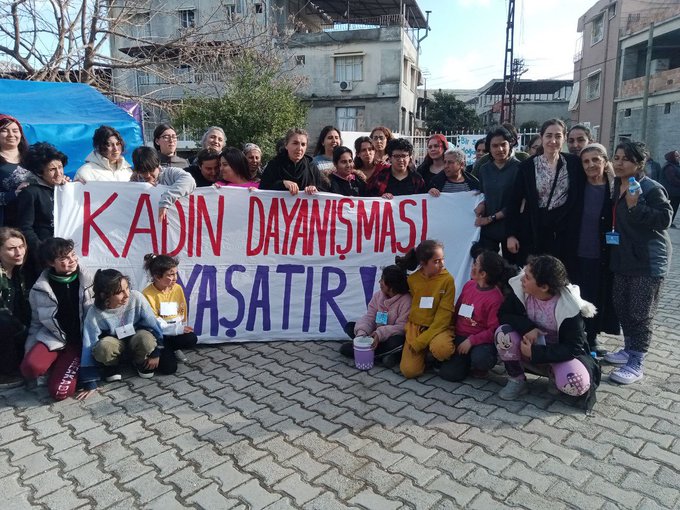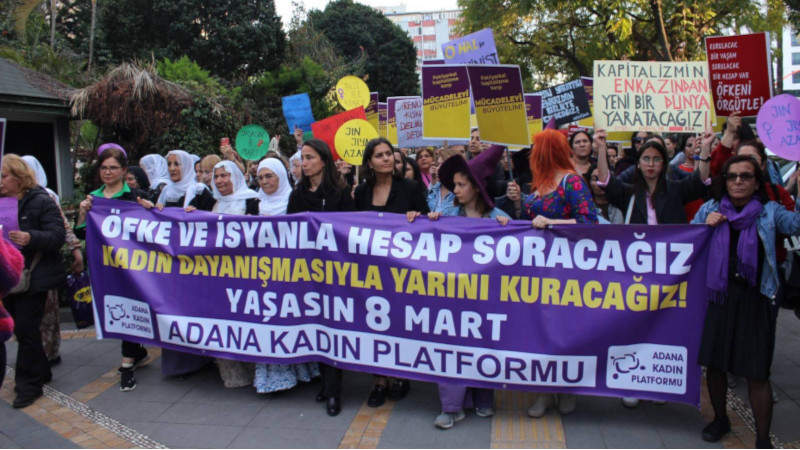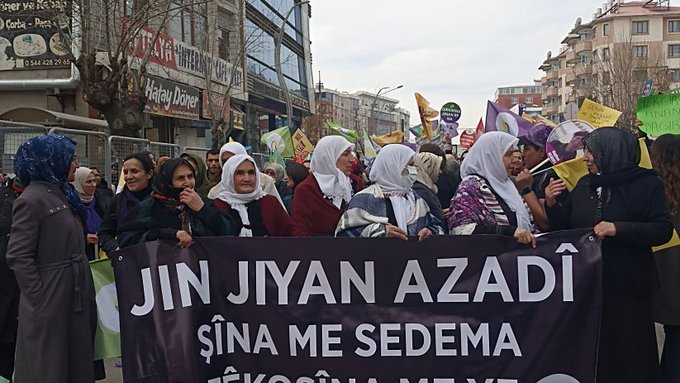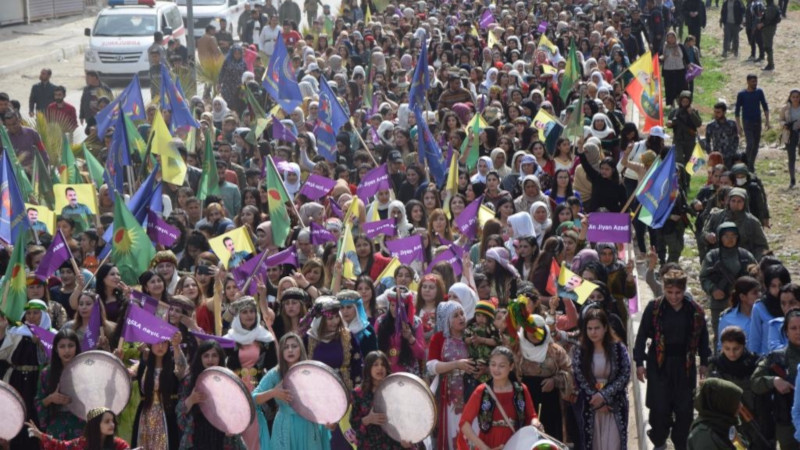Report on March 8 in Turkey, Northern Kurdistan and Rojava
Existing translations
In Turkey and Northern Kurdistan, March 8 was marked by mourning and anger in the face of the devastating earthquake in the region, as well as solidarity with the earthquake victims. It was filled with the will to demand accountability for the consequences of the earthquake, as tens of thousands were buried under the rubble due to a lack of precautions and aid. The earthquake affected millions of people in the country, while anyway the lives of the broad masses are made more difficult due to the economic crisis, murders of women and cuts in women's lives are on the agenda, and more and more hatred against LGBTI is being fomented. In the face of political Islamic fascist dictatorship, women's movements face great struggles.
Around March 8, democratic parties, socialist and feminist women's organizations mobilized to the earthquake zone, despite state repression and intimidation attempts, to spend March 8 there in solidarity with the affected women. For this purpose, the needs of the affected women were addressed with numerous donations and women's meeting points were organized in the affected areas. There, women formed a chain of life against poverty, hunger and misery in Hatay, among other places, and highlighted the importance of solidarity to rebuild life in the devastated areas.

In addition to rallies, Istanbul's traditional feminist night march took place despite government bans and police barricades. Masses of women participated in the demonstration full of enthusiasm but also anger, chanting slogans such as "It's not the earthquake that kills, it's the AKP's profit-driven system," "Jin, Jiyan, Azadî," "If you're afraid at night in the dark, think of the many women here," "The government must resign," "Women's place is in resistance." Pictures of murdered women such as Pınar Gültekin and Gülistan Doku were held at the demonstration. Speeches were held in Turkish, Kurdish and Arabic. International struggles, such as the popular and women's uprising in Iran and Rojhilat were also topics of the demonstrations.
In many other cities in Turkey, such as Ankara, Izmir, Adıyaman, Eskişehir, Bursa, Antalya, Çanakkale, Çorum, Denizli, Antep, Samsun, Adana, and Kayseri, women were in the streets demanding justice for earthquake victims, for those affected by daily male violence and state violence, for the persecution of women activists, for the immense exploitation of women workers.

In Northern Kurdistan, numerous demonstrations and actions took place around March 8, such as in Amed, Dersim, Hakkari and Van under the banner "It is the time of woman, life, freedom!" Candles were lit for the victims of the earthquake, and the actions were surrounded by the police. Women's anger was directed against the patriarchal fascist state that is waging a special war against women and the freedom movement in Northern Kurdistan.

In Rojava, Northern and Eastern Syria, where the popular democratic revolution is also a women's revolution and women have immense achievements with participation in democratic power and special rights and social organizations, March 8 is a holiday. Militant demonstrations and celebrations took place in Qamishlo, Hesekê, Kobanê and many other cities with the slogan "Jin, Jiyan, Azadî - To the women's revolution!". The Revolutionary Communist Women (JKŞ) also mobilized to the demonstrations.
The demonstrations condemned the fascist Turkish state, which continued to bomb targets in Rojava despite earthquakes and continues to pose the greatest threat to women throughout the area. Special greetings were sent to women in Iran, Rojhilat and Balochistan.

Document Actions




